Colonial interior design and architecture stand as a foundation of the American aesthetic, so why not borrow from tradition and take your Christmas decorating cues from this historical style? Colonial Williamsburg, Virginia provides a great place to start for decorative inspiration. Read on to learn a few ways to get the look, whether you live in a historic colonial house or a brand new home.
First, think of what people had to work with in colonial times. Eschew colorful lights, glitter, and other modern manufactured items in favor of natural botanical elements and simple handcrafted goods. Elements of colonial Christmas decor include:
- Evergreen boughs
- Vines and berries
- Pine cones
- Fruit- apples, pomegranates, oranges
- Nuts and seed pods
- Spices- cloves, cinnamon sticks
- Ribbon
One colonial Christmas tradition that has survived the test of time is the cloved orange or pomander. This traditional Christmas craft is easy to make and creates beautiful results, not to mention the fact that it smells delightful!
If you visit Colonial Williamsburg during the holidays, you’ll notice that many of the homes and buildings are adorned with swags rather than wreaths. Opt for a swag of evergreen boughs adorned with a few apples, oranges, or pomegranates, some pine cones, and a cinnamon stick for that spicy, warm Christmas aroma.
Depending on the style of your home, you may want something more formal. The arrangement above uses magnolia leaves, apples, berries, and other greenery to create a pair of wreathes topped by a large swag, echoing the characteristically grand, symmetrical architecture of the colonial home.
To get a colonial look inside your home, stick with the same rustic materials and simple aesthetic. This gorgeous colonial fireplace is framed with garlands of greenery and studded with pine cones and fruit. Antique pewter servingware and candlesticks complete the look.
There are many ways to add colonial Christmas style to your home by remixing the same tried-and-true components. Have you ever decorated in this style, or do you favor a more modern take on Christmas decorations? We’d love to hear from you, so share your thoughts in the comments below.
To learn more about our interior design services, contact MJN & Associates Interiors.

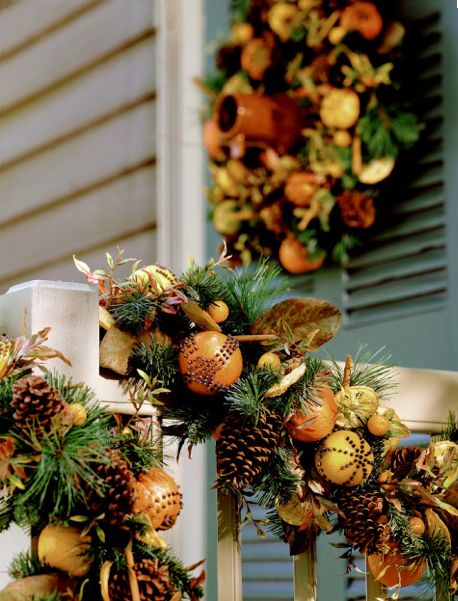
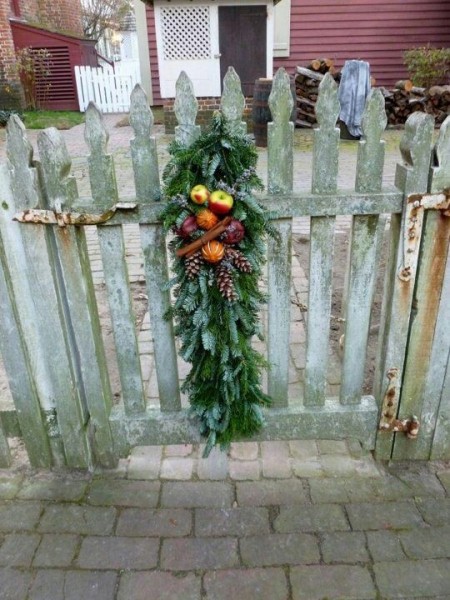
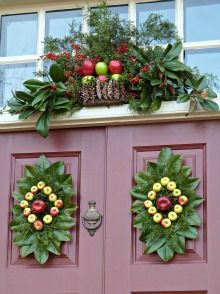
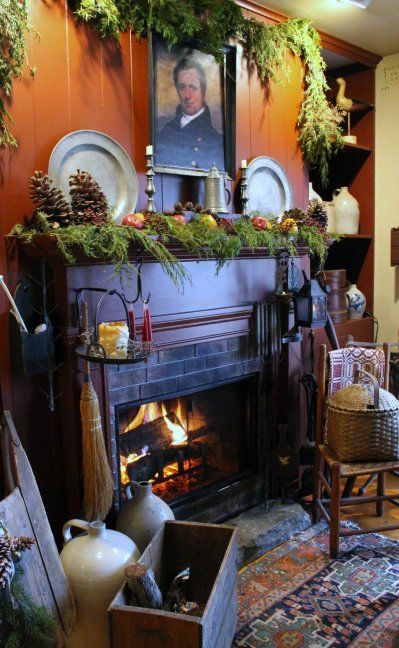
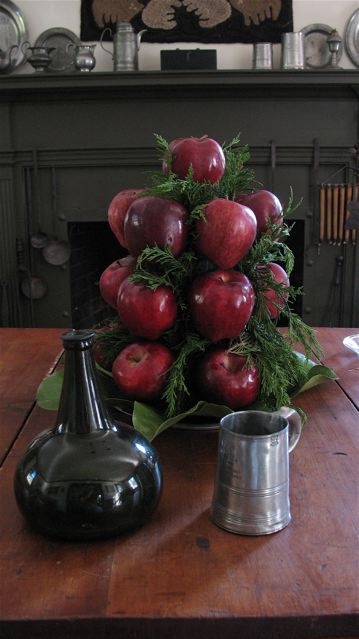
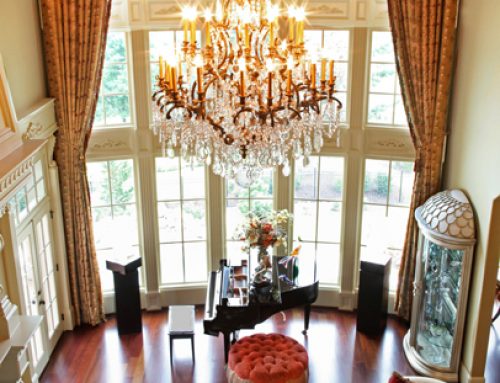
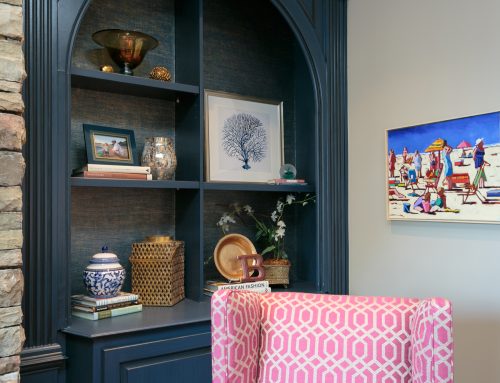
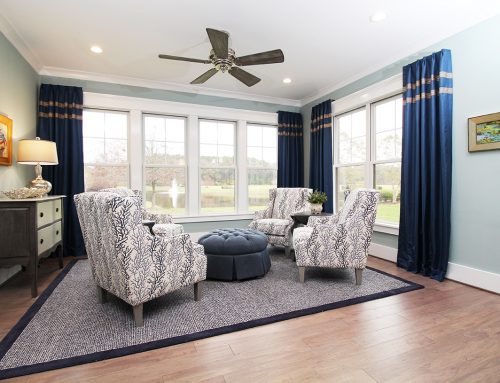
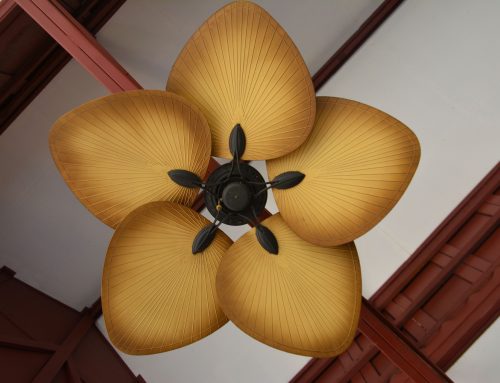
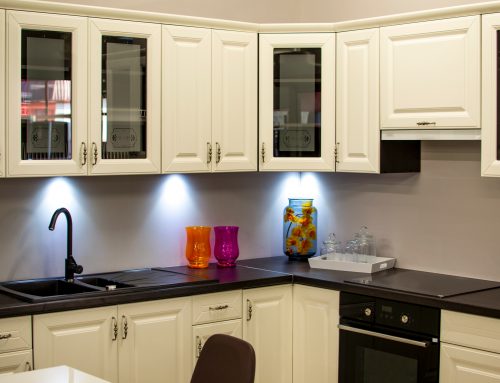
I love your examples here, but might it not be good to explain that this style of decoration was invented in the 1930s when Williamsburg was being restored to prevent the garish modern decorations of the time? Is it not true that most Colonial people did not observe Christmas in this way and certainly not with fruit outdoors, that could never be eaten? Thank you.